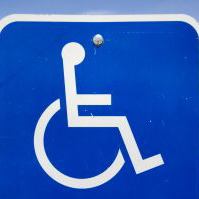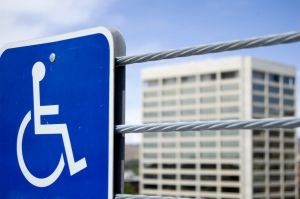Travel News
Blind Travelers Sue United Over Failure To Provide Accessible Kiosks
Blind Travelers Sue United Over Failure To Provide Accessible Kiosks
 A trio of blind passengers and the nation’s oldest advocacy
A trio of blind passengers and the nation’s oldest advocacygroup for the blind filed a class-action lawsuit against United Airlines on
Tuesday, charging that the airline’s airport kiosks violate state disability
laws.
According to the lawsuit filed last week in the U.S. District Court in the
Northern District of California, United’s airport ticketing kiosks use touch
screen technology that is impossible for blind customers to utilize without
assistance.
Airline kiosks are used to provide passengers with flight information and allow
them check into flights, and print tickets and boarding passes.
However, United’s kiosks are not outfitted with voice-prompted technology, a
tactile keyboard, or interactive screen reader technology that would make them
useable for blind passengers.
The National Federation of the Blind (NFB), which helped bring forth the suit,
says they have been in talks with United since May of 2009 about retrofitting
current machines with voice-activated software or replacing machines.
When the airline merged with Continental, the NFB was told that United was
unable to commit to changing their current system.
Faced with few alternatives, the NFB says it decided to sue United for violating
the California Disabled Persons Act and the Unruh Civil Rights Act, because the
airline’s kiosks are not available to blind passengers.
 The organization admits that United is just one of many
The organization admits that United is just one of many
airlines to fail to provide blind passengers with voice-assisted technology at
kiosks. It’s been insinuated, however, that the merger with Continental might be
the true reason behind the lawsuit.
As the largest airline in the country, United-Continental will be a huge
influence on other airlines. The NFB has hinted that if the future mega-airline
implements accessible kiosks, then other airlines might follow.
Currently, all airlines are required to provide assistance to passengers who are
not physically capable of using kiosks under the Air Carrier Access Act.
Disabled passengers are also allowed to come to the front of the line at the
check-in counter.
In a statement released this week, United Airlines pointed out that despite its
lack of accessible kiosks the company is in “full compliance with the Air
Carrier Access Act” and does not “tolerate discrimination of any kind.”
The trio named in the suit, Michael May, a business owner, Michael Hingson, a
business owner, and Tina Thomas, a substitute teacher, say that the assistance
granted by the Air Carriers Access Act is not enough.
Relying on strangers to hunt down airline personnel to help them can be
difficult, they say, and blind passenger face much more difficulty learning
about the details of gate changes or travel delays.
The trio says there is no excuse for visually impaired travelers to continue to
experience long waits and inconveniences when the technology exists that would
make travel for them easier and more efficient.
By Adriana Padilla for PeterGreenberg.com.
Related Links:USA Today, ABC News
Related Links on PeterGreenberg.com:












